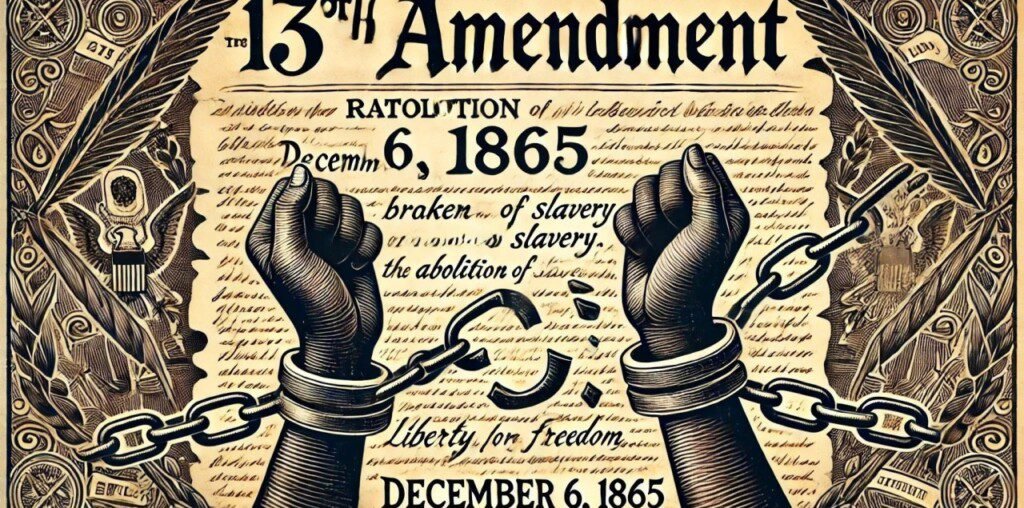Background: The United States had just emerged from the Civil War, a devastating conflict fought between the Union (the northern states) and the Confederacy (the southern states) largely over issues of slavery and states’ rights. The Union victory in April 1865 paved the way for significant social and political changes, particularly concerning the fate of millions of enslaved African Americans.
What Happened: On December 6, 1865, the 13th Amendment to the U.S. Constitution was ratified, legally abolishing slavery and involuntary servitude, except as punishment for a crime, in the United States. The ratification was the culmination of years of struggle by abolitionists and reformers, including influential figures like Frederick Douglass, Harriet Tubman, and President Abraham Lincoln, who had been instrumental in pushing for the abolition of slavery. The amendment was passed by Congress on January 31, 1865, and then sent to the states for ratification. The period leading up to ratification was filled with intense debate and lobbying, as not all states were willing to easily give up slavery. The assassination of President Lincoln in April 1865 added further complications, as it was uncertain if his successor, Andrew Johnson, would continue his work. Despite the challenges, by December 1865, enough states had ratified the amendment for it to be adopted into the Constitution, marking a new era in American history. The 13th Amendment was a monumental victory for abolitionists who had been fighting for decades against the institution of slavery, and it legally ensured that slavery was abolished throughout the entire country.
Impact for the Future: The ratification of the 13th Amendment marked the beginning of a long and complex journey toward equality in the United States. While it legally abolished slavery, it did not end the systemic racism and discrimination that African Americans faced. The amendment paved the way for future civil rights movements and inspired global human rights efforts, serving as a foundation for the 14th and 15th Amendments. It was the starting point for future reforms, such as the Civil Rights Act and Voting Rights Act, and continues to influence discussions on freedom and equality today.

